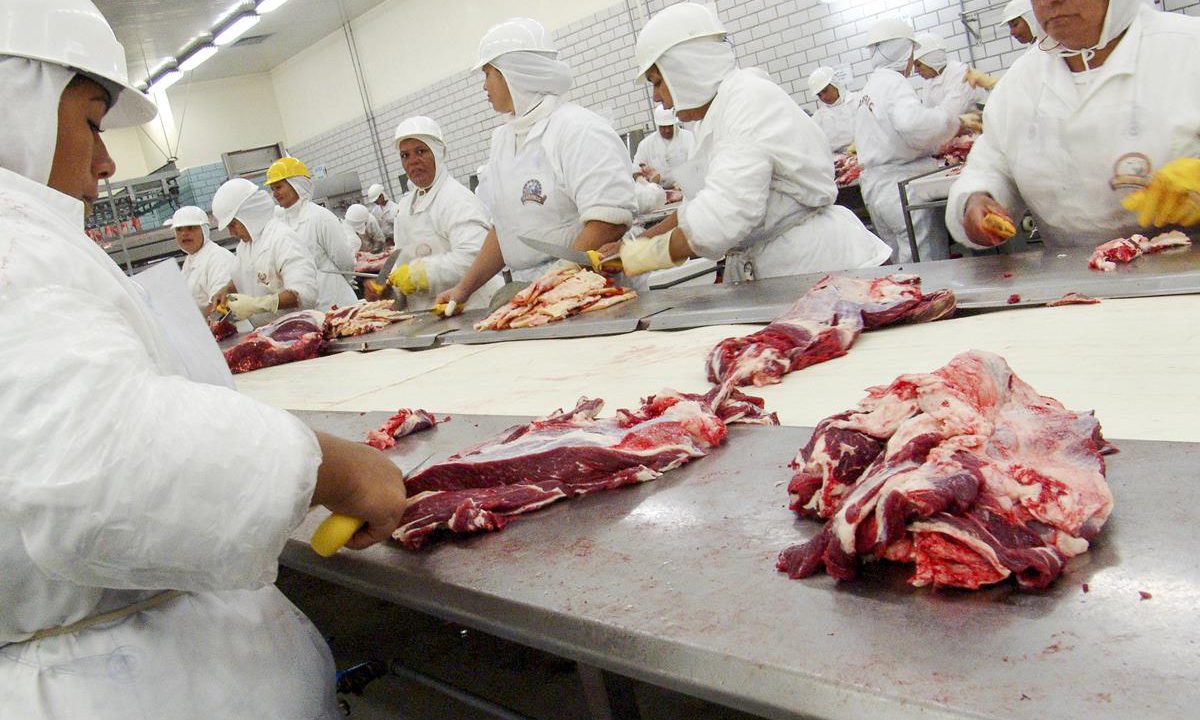One year ago, trade union SIPTU says it “set out its stall”, as its concerns grew over Covid-19 spreading within meat processing plants.
While there have been positive changes, developments and adaptations in the industry, challenges still remain – with communities and individuals still under threat as Covid-19 cases remain high in Ireland.
SIPTU estimates that 25% of the meat processing industry’s workforce has contracted the virus; it estimated in August that, at the time, the figure was 9%.
“Plants had proven vectors for Covid transmission as we’d seen in January [2020] elsewhere,” Greg Ennis, SIPTU’s manufacturing division organiser told Agriland.
Notwithstanding that, it took way too long to get an agreement with Meat Industry Ireland [MII], for example, on enhancing HSE workplace guidelines.
“And that was a positive development – however, we did not make progress on sick pay.”
Sick pay – the sticking point
Sick pay was a big sticking point in negotiations, and still remains to be so.
Last September, Agriland reported that MII reached agreement with SIPTU on a detailed code of practice for staff safety. However, MII was “refusing to engage and negotiate” on issues relating to sick pay for workers.
“And as of today, a year later, nine out of 10 workers in the meat industry do not have sick pay. And that is a real contributing factor to Covid transmission,” Ennis added.
To be eligible for payments, workers need to have a Personal Public Service Number (PPSN) and make Pay Related Social Insurance (PRSI) contributions. However, further concern lies with this.
‘Way too late’
The Migrant Rights Centre Ireland (MRCI) told Agriland that there are “definitely undocumented workers in the meat sector who may not have access to a PPSN”.
“There is still a concern and an issue also around bogus self-employment and workers who may be forced to be self-employed and not being direct employees of companies. The MRCI is very concerned about these types of practices,” Edel McGinley of the MRCI said, as questions around employment arose last summer.
Tánaiste Leo Varadkar has outlined plans to introducing statutory sick pay. If this was to come later in the year, “that’s way too late”, SIPTU’s Ennis feels.
“The gap between the €350 Covid Illness Benefit payment and the average rate that would be earned in a meat plant should be easily bridged by a billion euro industry, if there was the will to do so,” he said.
That would then discourage workers from maybe going to work if they have symptoms of Covid.
“Because, at the moment, workers are put in a very, very difficult space.
“The government and the employers have rightly said they’re essential workers – but that essentiality is not reflected in the pay or terms and conditions of the employment.”
Haunting memory
Ennis said that one of the “haunting memories” of the last 12 months is “in some cases, exploitation of workers”.
“As we move on, things have changed in some ways for the better – we now have the vast majority of inspections in meat plants unannounced whereas prior to Covid, the vast majority were announced visits, so that’s a development; and we have the ongoing serial PCR testing,” he said.
“I don’t believe we’ve done everything we can. We wanted a ‘farm to fork’ taskforce, a year later we don’t have that; it took too long to bring in mandatory temperature testing.
“It took too long for the government to realise how serious the problem was; and the biggest concern I have is that six months after the Oireachtas Covid-19 committee issued its recommendations that pertain to the food and meat processing industry, they have not yet been acted upon.
When I look back on it, it’s a very frustrating year. To me, what has happened in some cases borders on exploitation.
“I still remain extremely concerned about the situation, particularly because of the transmissibility rates of the new variants.
“I feel it’s unfair the workers would have to quarantine possibly at a loss of earnings, that shouldn’t be the case – they’re essential workers, they shouldn’t be forced into a quarantine and then lose earnings as a consequence of it.
“I still would be of the view that where there are clusters of Covid in meat plants, those plants should be shut down without loss of earnings to the workers. They [plants] should be deep-cleaned, sanitised, everyone tested and only when the HSA inspects it, workers should return to work.
“In most cases, where there have been outbreaks, meat plants have not shut down and they continue to produce. That is a worrying trend – we cannot put the unbridled drive for profits over the health and wellbeing of workers and the wider community in a pandemic era.”
‘I believe evidence will come to light’
Ennis said he would “fear” that after the pandemic, the spotlight may be taken off these vulnerabilities of workers.
“As far as SIPTU is concerned, we will keep the spotlight firmly on the meat industry, because some of the practices that are going on within that industry, I think they will come out in time,” he said.
“It doesn’t please me to say it, but some practices border on exploitation. I believe evidence will come to light that there are unsavoury things happening within the industry, especially in regards to the employment of people.”
The total amount of laboratory-confirmed cases linked to these outbreaks since November 22 is 1,015; along with 327 linked to outbreaks in other food/beverage production and processing plants.
